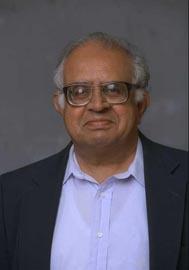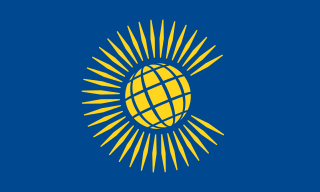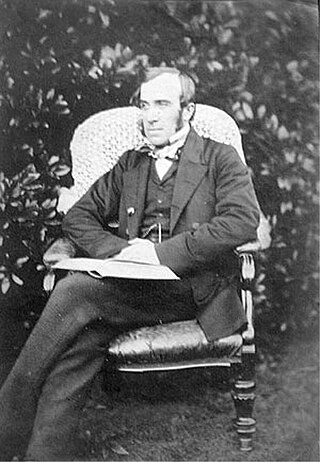
Devanagari, also called Nagari, is a left-to-right abugida, based on the ancient Brāhmī script, used in the northern Indian subcontinent. It was developed and in regular use by the 7th century CE. The Devanagari script, composed of 47 primary characters, including 14 vowels and 33 consonants, is the fourth most widely adopted writing system in the world, being used for over 120 languages.

Tamil is a Dravidian language natively spoken by the Tamil people of South Asia. Tamil is an official language of the Indian state of Tamil Nadu, the sovereign nations of Sri Lanka and Singapore, and the Indian territory of Puducherry. Tamil is also spoken by significant minorities in the four other South Indian states of Kerala, Karnataka, Andhra Pradesh and Telangana, and the Union Territory of the Andaman and Nicobar Islands. It is also spoken by the Tamil diaspora found in many countries, including Malaysia, Myanmar, South Africa, United Kingdom, United States, Canada, Australia and Mauritius. Tamil is also natively spoken by Sri Lankan Moors. One of 22 scheduled languages in the Constitution of India, Tamil was the first to be classified as a classical language of India.

Lokesh Chandra is a prominent scholar of the Vedic period, Buddhism and the Indian arts. Between 1942 and 2004, he published 576 books and 286 articles.

The Oxford Centre for Hindu Studies, founded in 1997, is a recognised independent centre of the University of Oxford, England. It develops academic programmes of education, research and publishing in Hindu studies. It aims to encourage the Hindu community in the academic study of their own traditions and cultures.

Satya Vrat Shastri was an Indian Sanskrit scholar, writer, grammarian and poet. He wrote three Mahakavyas, three Khandakavyas, one Prabandhakavyas and one Patrakavya and five works in critical writing in Sanskrit. His important works are Ramakirtimahakavyam, Brahattaram Bharatam, Sribodhisattvacharitam, Vaidika Vyakarana, Sarmanyadesah Sutram Vibhati, and "Discovery of Sanskrit Treasures" in seven volumes.
Sanskrit revival is the accumulation of attempts at reviving Sanskrit that have been undertaken. This revival is happening not only in India but also in Western countries like Germany, the United Kingdom, the United States and in many European countries.
The International Statistical Institute (ISI) is a professional association of statisticians. It was founded in 1885, although there had been international statistical congresses since 1853. The institute has about 4,000 elected members from government, academia, and the private sector. The affiliated Associations have membership open to any professional statistician. The institute publishes a variety of books and journals, and holds an international conference every two years. The biennial convention was commonly known as the ISI Session; however, since 2011, it is now referred to as the ISI World Statistics Congress. The permanent office of the institute is located in the Statistics Netherlands building in Leidschenveen, in the Netherlands.

Rangasami Lakshminarayan Kashyap was an Indian applied mathematician and a Professor of Electrical Engineering at Purdue University.

The Commonwealth of Nations, simply referred to as the Commonwealth, is a political association of 56 member states, the vast majority of which are former territories of the British Empire. The chief institutions of the organisation are the Commonwealth Secretariat, which focuses on intergovernmental aspects, and the Commonwealth Foundation, which focuses on non-governmental relations among member states. Numerous organisations are associated with and operate within the Commonwealth.
Ramchandra Narayan Dandekar (1909–2001) was an Indologist and Vedic scholar from Maharashtra, India. He was born in Satara on 17 March 1909 and died in Pune on 11 December 2001.
Venkataraman Raghavan (1908–1979) was a Sanskrit scholar and musicologist. He was the recipient of numerous awards, including the Padma Bhushan and the Sahitya Akademi Award for Sanskrit, and authored over 120 books and 1200 articles.
Hari Dutt Sharma is a Sanskrit poet who won President certificate of honor in 2015 and the Sahitya Akademi Award for Sanskrit in 2007 for his work of poetry, Lasallatika.

Bettina Sharada Bäumer is an Austrian-born Indian scholar of religion. Vandana Parthasarathy, writing in The Hindu, described Baumer as a "renowned Indologist, one of the foremost expounders of Kashmir Saivism and a well-known figure in the field of inter-religious dialogue". She was awarded the Austrian Decoration for Science and Art by Government of Austria in 2012 and Padma Shri by Government of India in 2015 for her contribution to Literature and Education.
The World Sanskrit conference is an international conference organised at various locations globally. It has been held in North America, Europe, Asia and Australia. The Delhi International Sanskrit Conference of 1972 is considered to be the first World Sanskrit Conference. So far it has been held in India four times.
Vempati Kutumba Sastry is an Indian academic. He was the Vice-Chancellor of the Rashtriya Sanskrit Sansthan, for the period 2003 to 2008. He is the president of the International Association of Sanskrit Studies. He was a member of the organising committee of the fifteenth World Sanskrit Conference. He is a member of the governing board of the Wider Association of Vedic Studies. He is on the editorial board of the Indologica Taurinensia, The Journal of the International Association of Sanskrit Studies, published from Torino.

The election in 1860 for the position of Boden Professor of Sanskrit at the University of Oxford was a competition between two candidates offering different approaches to Sanskrit scholarship. One was Monier Williams, an Oxford-educated Englishman who had spent 14 years teaching Sanskrit to those preparing to work in British India for the East India Company. The other, Max Müller, was a German-born lecturer at Oxford specialising in comparative philology, the science of language. He had spent many years working on an edition of the Rig Veda and had gained an international reputation for his scholarship. Williams, in contrast, worked on later material and had little time for the "continental" school of Sanskrit scholarship that Müller exemplified. Williams regarded the study of Sanskrit as a means to an end, namely the conversion of India to Christianity. In Müller's opinion, his own work, while it would assist missionaries, was also valuable as an end in itself.
Mohan Mishra was an Indian physician, known for his studies on Visceral leishmaniasis, and its treatment using Amphotericin B, regarded by many as a pioneering attempt. The Government of India honoured him, in 2014, with the award of Padma Shri, the fourth highest civilian award, for his contributions to the fields of medicine.
Ramaranjan Mukherji (1928–2010) was an Indian writer, academician, Indologist and a former chancellor of Rashtriya Sanskrit Vidyapeetha, known for his scholarship in Sanskrit literature. He was honored by the Government of India, in 2010, with the fourth highest Indian civilian award of Padma Shri.
Ngawang Samten is a Tibetan educationist, Tibetologist and the vice chancellor of the Central University for Tibetan Studies. Besides editing publications such as Abhidhammathasamgaho, Pindikrita, Pancakrama and Manjusri, he is the co-translator of Je Tsongkhapa's commentary on Nagarjuna’s Mūlamadhyamakakārikā. The Government of India awarded him the fourth highest civilian honour of the Padma Shri, in 2009, for his contributions to Education.

Sanskrit Cinema is a part of Indian cinema. Only 15 films have been made in Sanskrit have been made so far since 1983. There is no separate industry set for Sanskrit films.









